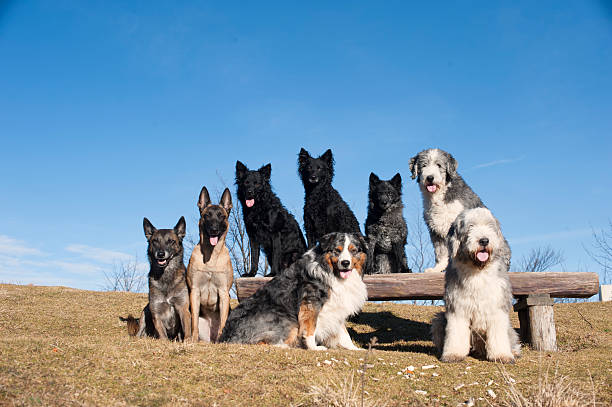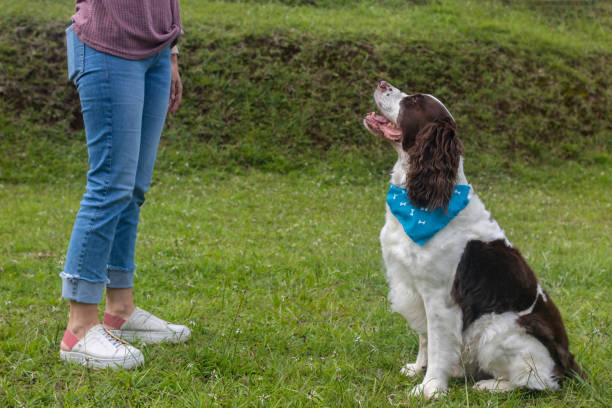Within the animal kingdom, dogs are among the creatures most adored by humans.
They’re loyal and loving companions who can help ease loneliness and depression in people of all ages. They also make great guard dogs, entertainers, and athletes! It’s no wonder that over a million households welcome a new puppy each year.
But with some time and effort, you can ensure your new pup has a long, happy life ahead of them with lots of love and care. Learn how to set the stage for a lifetime of success by following these five tips for getting your puppy off to a good start.


Give Them A Place To Call Their Own
Dogs are pack animals by nature, so they feel safest and most secure in a pack of their own kind. Having their own space gives them a safe refuge where they can rest, relax, and sleep without fear of bullying or harassment from other dogs. This area should extend their crate and contain everything they need for comfort and safety. This means a soft, clean blanket or bed; an ample supply of food and water; toys if you like; a separate area to do their business; etc.


Know The Stages Of Your Puppy’s Development
One of the biggest pitfalls in puppy parenting is expecting too much from your pet before they’re developmentally ready to deliver. As such, you must learn the stages of your puppy’s growth to know what to expect and how to manage its needs. The following are the developmental stages for a dog through age six months:
Age 2 weeks to 9 weeks
A puppy’s eyes and ears are closed, so they rely solely on their strong sense of smell. They also don’t move around much because most of their bones have not fully formed yet. At this time, they should ideally be with their mother.
Age 10 weeks to 12 weeks
Puppies begin to open their eyes, and they’re eager and willing to move about the world. They also develop a strong sense of hearing at this time.
Age 3 months to 4 months
Pups become more mobile as well as interactive with the outside environment. This is an important time because it’s when you should begin training your dog. You can also start leash training your pup now.
Age 4 months to 6 months
A puppy’s face and neck begin to develop. By this time, they should eat solid foods on their own and sleep for about 3 hours at night.
Age 6 months to 7 months
This is the time when puppies become more fully active and explore the world around them. They should also have a full set of teeth by this time or close to it.
Age 7 months to 8 months
Your dog will be more interested in chewing on things, which is both good and bad. You must keep dangerous chemicals like cleaning supplies locked away; otherwise, your puppy could poison themselves by chewing on the wrong thing.
Age 8 months to 10 months
A dog’s body, legs, and tail are now fully developed. Many pups will also have their adult coat of fur at this time. They should also be able to spend two or three hours alone without needing to go to the bathroom.
Age 10 months to 12 months
Your dog may be able to run at this point, and with proper training, it should know the difference between good and bad behaviours. Many dogs will also have their permanent teeth by this time.


Socialize Your Puppy At An Early Age
One of the most important aspects of a puppy’s development is exposure to other dogs and people to learn acceptable social cues. A lack of these cues has been linked to increased aggression in some breeds and difficulty training later. Consequently, you must expose your pup to various people and animals at an early age to know how to behave around them once they’re older.


Be Patient During Training
Dogs are naturally brilliant creatures, but that doesn’t mean all dogs learn at the same pace or in the same way. When it comes to training your dog, you’ll have much more success if you keep the following in mind:
- Young puppies can’t focus for long periods of time, so training sessions should be short (about 5 minutes) and relatively frequent (every 1 to 2 hours throughout the day).
- Puppies learn best through play, treats, praise, and positive reinforcement. They may not catch on as quickly if you use reprimands or punishment.
- It’s best to train your puppy in short, dedicated sessions rather than trying to do it throughout the day because they’ll be more focused and attentive when you do.
- You should also have a variety of training methods, like using treats, praise, and playing – so that even if one method doesn’t work, you can switch to another.


Be Prepared For The Cost Of Raising A Puppy
Raising a puppy takes a lot of time and effort, but it also requires a lot of money. Things that new puppy owners should be prepared to buy include:
- Food bowls
- Food
- Food and water dishes
- Leashes
- Collars
- Crate
- Carriers
- Vaccinations and tests (i.e., deworming, vaccinations, spay/neuter surgery)
- Grooming supplies (e.g., shampoo, brush, nail clippers)
- Training and obedience classes
- Toys and chews
- Pet insurance


Why should I discipline my puppy?
Puppies learn best through play, treats, praise, and positive reinforcement. The next step with training is that you’ll need to teach them the difference between good and bad behaviours. This can be done through lots of work with your pup as it grows up to get them to know what’s right from wrong.
At what age should I start training my puppy?
The best time to start training a pup is at three months old, right when their personality starts coming out and they have more energy. You want to make sure that they catch on quickly so that there are no problems when they’re older, and this will give you the best results overall.
How long should a training session be?
A puppy can’t focus for very long, so sessions should only be about 5 minutes. You should definitely keep sessions short because if you go too long, the pup will become tired and unfocused, making it harder to train them and increasing the likelihood of problems.


What’s a good way to train my new puppy?
A good way to start is by training them with treats. They are easy to use, your pup will take them well, and you can give them many of these daily without overfeeding them and causing weight gain. Plus, if you know how to read the signals they’re giving off when they’re hungry, you can give them a treat just before mealtime.
How often should I train my puppy?
It would help if you tried to have short training sessions every 1 or 2 hours throughout the day so that your pup doesn’t get bored and tired. You can also mix things up with different training methods like treats, praise, and playing, which will keep them more engaged and focused on the task.
What is positive reinforcement?
Positive reinforcement is when you tell your pup “good job!” or reward them with a treat for doing something right to make them do it again. This form of training is good because you can give your pup a lot of praise and treats, but it won’t do any good if you’re misusing it. That’s why it’s important to know the right time to use these types of rewards so that they learn quickly.
What is punishment?
Puppies don’t respond well to punishment, including verbal reprimands and physical corrections or spankings. This is because they don’t know the difference between what they’re doing right and wrong, so it’s not a good idea to use these types of techniques. The most important thing is that you find training methods that your pup will respond well to!
What are some things I should avoid when training my puppy?
- Spanking or hitting them
- Yelling at them
- Making them afraid of you
- Not being consistent with rewards and punishments
How will I know if my puppy is having problems?
If your dog is housebreaking, they might start having accidents in the house because they don’t understand what you want from them. You might see them nibbling, chewing on things, and not taking direction well. You should get help for these problems immediately so that you can correct them quickly before they become harder to fix.
Conclusion
In conclusion, it’s crucial to remember that puppies are much like children. They need discipline and guidance to grow into well-behaved adults, which is why training them properly from the beginning is essential. If you’re feeling overwhelmed or don’t know where to start with your new pup, this article should help give you some direction on how best to train your puppy for success.


